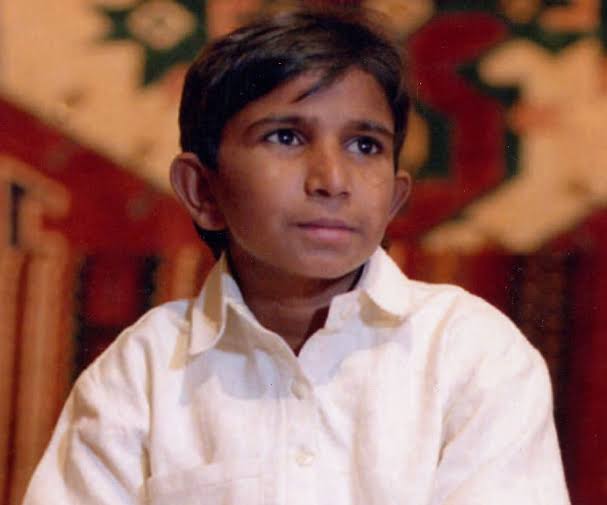Iqbal Masih, The Labourer Hero

In life we read the stories of many heroes who have changed the destiny of a country or a nation through struggle in their lives. But there was one child in history who changed the lives of 3,000 children at the age of just twelve. At the age of twelve, he had to go through many painful stages but he did not give up. The boy's name was Iqbal Masih. Iqbal Masih's story travels from sorrows to happiness and happiness to death.
Robin Gomes wrote a impressive report on this boy. Here is what he say:
It’s 25 years since the homicide of Iqbal Masih who himself was a slave of Pakistan’s “carpet mafia”. And for 25 years the Christian Cultural Movement, established in the Spanish capital, Madrid, has been campaigning against child slavery worldwide in the name of Iqbal Masih.
The campaign defends that the April 16 International Day Against Child Slavery is not related to the United Nations’ World Day Against Child Labour that is marked on June 12. Child slavery, it explains, is different from child labor.
Iqbal Masih
Iqbal Masih was born in 1983 in Muridke, a commercial city outside Lahore, in a needy Christian family. A prey of bonded labor, he was put to work at the age of 4 by his parents to pay off their debt of Rupees 600 borrowed from a proprietor of a carpet factory.
In the factory, Iqbal and most of the other kids had to work long hours under cramped situations, tightly bound with chains to the carpet looms to discourage them from fleeing. Understanding that his family’s debt wouldn't be paid off anytime shortly, the boy, at the age of 10, broke loose and exited from his slavery.
Rights Activism
He exposed the carpet mafia, encouraging the nation not to pay for carpets made by slave kids. Though restricted and hunched from 6 years of malnutrition and slavery under inhuman situations, Iqbal helped over 3,000 Pakistani youngsters flee their bounded slavery and made speeches about child labor throughout the planet.
He was murdered on April 16, 1995, allegedly by the carpet mafia, after receiving many warnings for having shut factories that used child slaves.
According to the Christian Cultural Movement, there are 400 million enslaved youngsters between 4 and 14 years old around the globe, 165 million are under 5 years of age today. Conflicts, prostitution, labor exploitation, famine, ill-treatment… are the normal day for millions of children around the earth.
While the exploitation of children in different forms is increasing in the growing world, the movement says, the method is re-emerging in the developed nations.
International Recognition
Iqbal’s activism earned him international recognition and he has rewarded a prize in Stockholm and Boston. In 1994 he earned the Reebok Youth in Action Award. He motivated the creation of unions such as “Free the Children”, in Canada, and the Iqbal Masih Shaheed Children Foundation, which has over 20 institutes in Pakistan. The “World's Children's Prize for the Rights of the Child” was given to him posthumously in 2000.
A courtyard in the northwestern Spanish city of Santiago de Compostela is named after Iqbal Masih.
The United States Department of Labor's Bureau of International Labor Affairs (ILAB) has the annual “Iqbal Masih Award for the Elimination of Child Labor”.
ESCAPE AND ACTIVISM
At the age of 10, Iqbal exited his slavery, after understanding that bonded labor was announced illegal by the Supreme Court of Pakistan. He fled and then went to the police to report Arshad, but the police sent him back to Arshad, who said the police to tie him upside down if he attempted to escape again. Iqbal escaped a second time and he joined the Bonded Labour Liberation Front (BLLF) School for former child slaves and shortly completed a four-year education in only two years.
Iqbal helped over 3,000 Pakistani children that were in bonded labor to escaped to independence and made speeches about child labor throughout the globe.
He expressed a passion to become a lawyer to better prepare him to free bonded laborers, and he started to visit other countries including Sweden and the United States to share his story, motivating others to join the struggle to eliminate child slavery.
In 1994 he earned the Reebok Human Rights Award in Boston and in his acceptance speech he said: "I am one of those millions of youngsters who are suffering in Pakistan through bonded labour and child labour, but I am blessed that due to the efforts of Bonded Labour Liberation Front (BLLF), I go out in protection I am standing in front of you here today. After my independence, I joined BLLF School and I am studying in that institute now. For us slave children, Ehsan Ullah Khan and BLLF have done the exact practice that Abraham Lincoln did for the slaves of America. Today, you are free and I am free too."
DEATH
"Iqbal Masih, a courageous and eloquent boy who visited several international conferences to condemn the sufferings of child weavers in Pakistan, was shot dead with a shotgun while he and some friends were cycling in their town of Muridke, near Lahore."
Iqbal was fatally shot by the carpet Mafia, while touring relatives in Muridke, Pakistan on 16 April 1995, Easter Sunday. He was 12 years old at the moment. His mother said she did not think her son had been the victim of a plan by the "carpet mafia".However, the Bonlded Labour Liberation Front thought differently because Iqbal had received death warnings from people connected to the Pakistani carpet industry. His funeral was attended by almost 800 mourners.
Following his death, Pakistani economic elites reacted to declining carpet sales by rejecting the use of bonded child labour in their factories and employing the Federal Investigation Agency (FIA) to brutally harass and charge activists working for the Bonded Labour Liberation Front (BLLF). The Pakistani press conducted a smear movement against the BLLF, insisting that child laborers receive high wages and acceptable working circumstances.
Published in: Vatica News Blogg

 My First News Item
My First News Item My Nine News Item
My Nine News Item

